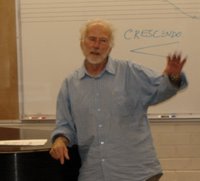There are two reasons why newspapers are getting rid of established critics. The obvious one is that newspaper revenues are caught in a double arm-lock by the internet and the credit crunch, neither of which is likely to ease in the forseeable future.
Less obvious is the internal perception, right or wrong, that certain forms of commentary and opinion forming are no longer central to what editors want and readers expect. As a sometime editorial executive, I have been party to some these discussions and that leaves me more than a little puzzled at the hysteria aroused by the recent layoffs. Nobody likes to see job losses but newspapers are a dynamic industry, quick to adapt to changes in public demand.
Take the role of television critic. Ten years ago, it was a high-profile spot in most papers, the generator of many water-cooler moments in the workplace. But television is not what it was. With hundreds of channels, there is not much likelihood that four people around the cooler will have watched the same programme the night before and, if they did, that they will want to read intelligent comment in the morning about dumb reality shows and talent contests.
If television is a mindless thing on the wall, why bother to write about it? Newspapers that have abolished TV reviews suffered no backlash from readers. The function had become redundant, except in the case of a few doyens - Nancy Banks-Smith in the Guardian, for instance - who developed a voice over many years that loyal readers would miss.
Radio criticism is a different matter. Radio has a distinct community, or set of communities. It is listened to by long-distance drivers, nursing mothers, menial workers and the elderly, among others. Many of them listent intently since, on a great many stations, content has been upheld at high level.
Radio columnists such as Gillian Reynolds in the Daily Telegraph provide a stimulating collage of inside information, listener guidance and incisive artistic criticism that serves, in turn, to keep producers on their toes and maintain original output. A loss of the radio signal would provoke outrage among the readership.
Neither of these forms of criticism has a direct bearing on arts reviews, which is where many of the cuts have lately been falling. It is, of course, impossible to generalise about critics. There are good arts critics and bad, as well as once-good critics who run out of things to say or hate everything in sight. But what is happening at the moment is that the axe is falling indiscriminately on critics good and bad - Lawrence Johnson in Miami is one of the best - and the tendency is growing in newspapers to regard arts criticism as peripheral to their purpose.
That would be both a disaster for newspapers and a danger to a free society, matters which I will attempt to reflect upon in a future comment. Your responses are, as ever, essential to the process.
Source:
Artsjournal
 Biography
Biography


